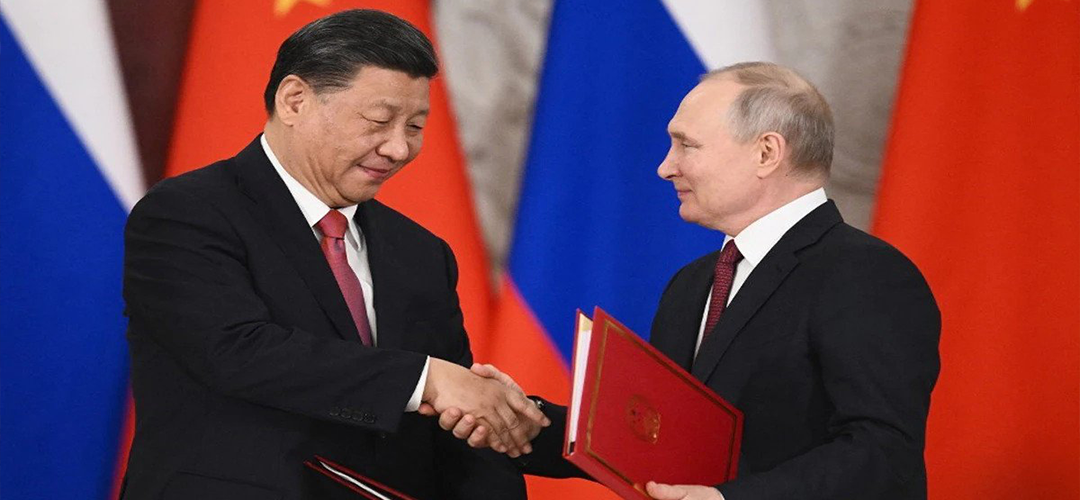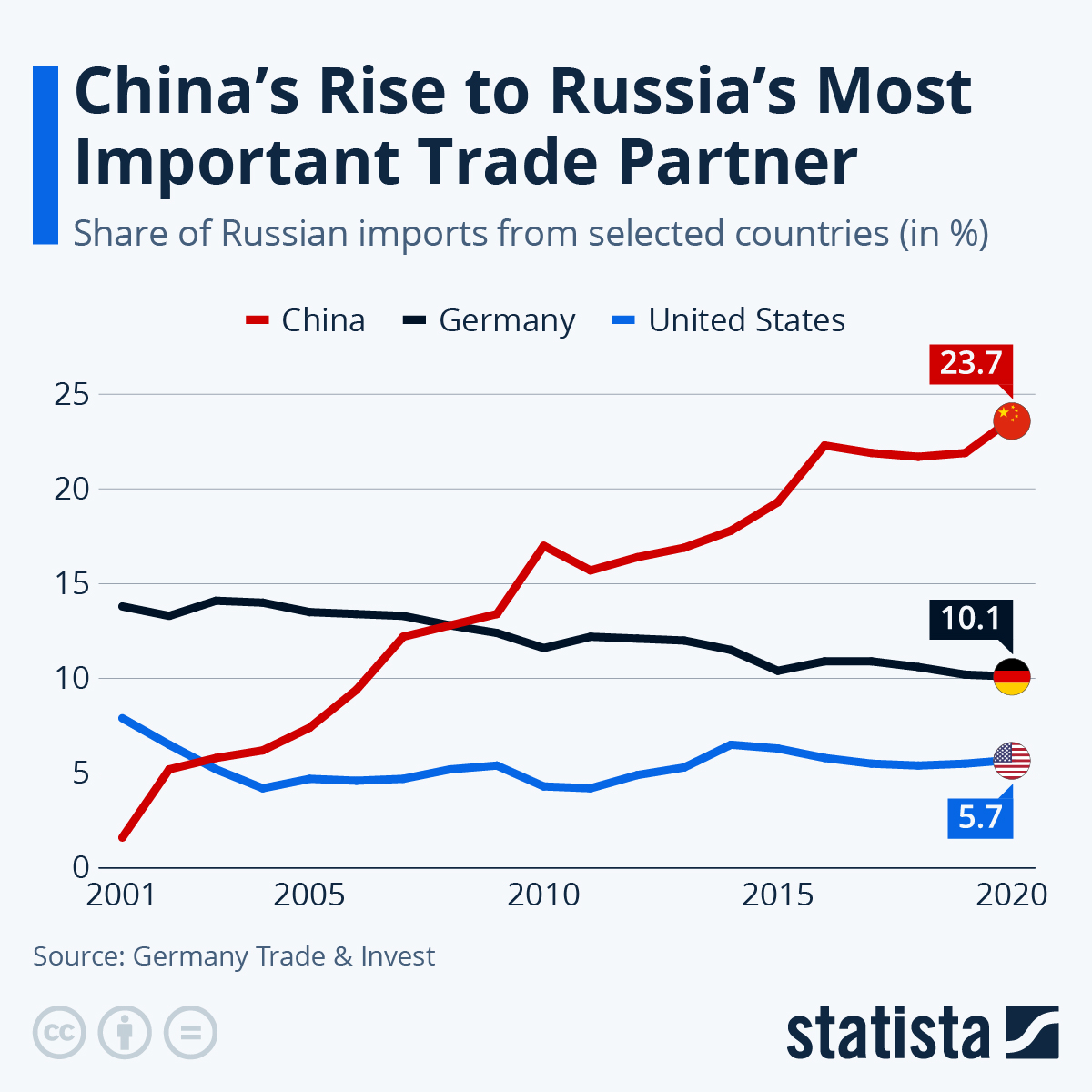Xi Jinping as a Peacemaker?
March 25, 2023 | Expert Insights

The Russia-Ukraine war has been going on for more than a year, and there are no signs of it ending anytime soon. With both combatants in self-destruct mode, a united West cheers from the sidelines egging them on to further bloodshed and destruction.
Meanwhile, geopolitics continue their relentless march as the war imposes a high price globally, threatening food and energy supply chains and sinking economic growth.
Amidst all this gloom, the visit of Chinese President Xi Jinping raised hopes of some kind of peace plan being hammered together. The question is -does President Xi Jinping have the leverage to break the deadlock?
Background
Over the years, as China's honeymoon with the West faded and Putin's Russia started challenging the U.S. and its allies in Europe, the Middle East and Africa, these two powerful nations grew increasingly isolated in the global community. Unsurprisingly, they have grown closer, drawing other international lone wolves like Iran and North Korea with them.
With over a decade of ruling China, President Xi Jinping has forged a strong relationship with his Russian counterpart, the longest-ruling President in Russian history. With a similar authoritarian proclivity and dreams of winning back the lost glory of their respective nations, it is hardly surprising that both Presidents gel well. The growing convergence of mutual interests, when faced with an openly hostile West, gives strength and meaning to their partnership, even if it has not yet been formalised as an alliance to give it a clear-cut and definitive direction.
The frequency of meetings between the Russian and Chinese leaders has increased over the years, and they have met more than 40 times in recent years! This has bred an exceptional level of familiarity between the two heads of state. They know each other's position clearly, so they know how to negotiate with each other. There is no ideological connection between the two sides; it is all based on shared strategic interests. Neither side have any illusions about this.
Russia has looked towards Chinese support whenever it finds itself driven into a corner. When it faced international criticism for its 2014 annexation of Crimea, Xi visited Moscow, prompting the phrase ' both countries being natural partners and natural allies'. This was the first time this description was used since the 1970s when China drifted into the Western camp after its epoch-making rapprochement with the Nixon Administration. Then in 2015, both signed a non-aggression pact. Among other things, this pact stipulated that neither side would launch cyber-attacks against the other.
2019 witnessed a major upswing in official relations between the two countries. This year, a five-point "comprehensive strategic partnership" based on mutual understanding and “win-win cooperation” was officially announced by Moscow and Beijing. This was a big step forward in bilateral ties.
In 2022, Mr Putin visited the Chinese capital on the sidelines of the Beijing Winter games, which were being lambasted by Western nations for Chinese human rights violations etc. During this meeting, the two leaders inked what became known as a "limitless partnership.” Both sides declared that there were “no forbidden areas of cooperation.” Weeks later, Russia invaded Ukraine. So, the message sent to the West was clear.
Post Ukraine, the Chinese have remained steadfast in their support of Russia.

Analysis
At a time when the ICC has been strong-armed to formally issue warrants against Mr Putin as a war criminal, President Xi Jinping’s visit is a strong signal which must have given a measure of relief to Mr Putin and his staunch supporters. Washington lost no time in sharply criticising the timing of the visit, calling it a ‘diplomatic cover’ to a war criminal.
To this day, China maintains that it knew nothing about Putin's plan to invade Ukraine, and nothing was discussed in Beijing. Western intelligence agencies tend to disagree with this claim, and they point out the fact that Putin waited till the end of the Winter Olympic Games before he made his move. This displays an unacknowledged level of collusion between the two sides.
The invasion marked an awkward moment in the Xi-Putin relationship. China could not openly support Russia’s invasion of Ukraine. It believed in the sovereign territorial integrity of countries. At the same time, it could not openly condemn its natural ally. So, the Chinese were in a dilemma on how to respond to this invasion. They took a long time to sort out this problem.
China did not want to get caught up in these sanctions and other retaliatory measures against Russia. Unlike the Russian economy which contributes very little to the global economy and is not integrated into the international economic system, the Chinese economy is a global behemoth which is completely integrated with the world economic order. This difference means that the Chinese economy will be unable to withstand sanctions in the same way that the Russian economy can. So, the Chinese could not afford to support the Russians openly due to the economic repercussions. They also had no idea which way the invasion would go. Thus, they decided to follow a wait-and-watch approach.
In the meantime, the Chinese did not officially condemn the invasion. Russia did not buckle under the pressure. The Chinese saw an opening in all this. They slowly began to change their position on the invasion. Support for Russia was incrementally increased.
China has been proposing a peace plan between Ukraine and Russia that is heavily tilted in favour of the Kremlin as it allows Russia to retain its territorial gains and has few specifics. The West would have been relieved that during the course of his visit, Mr Xi Jinping refrained from bringing up the peace proposal once again
Assessment
- In the absence of a clear-cut peace proposal or new options for bringing the war in Ukraine to a speedy end, the visit appears more like a symbolic gesture by an old friend for a totally isolated President. It signifies to the West that Beijing will not buckle under western pressure.
- While President Putin must have felt reassured by President Xi Jinping's public gesture, for the latter, it further reinforces the image that China wants to cultivate globally of a world-shaping leader with a global connect. After the success of the Saudi-Iran agreement, Mr Xi Jinping is riding a new high.
- Neither Xi nor Putin wants to submit themselves to the bullying tactics of the West, and they both need each other now more than ever before. Of course, China has the upper hand in this relationship since it is more powerful than Russia in all respects. But Moscow is important to Beijing to act as a spoiler in its dealings with the West. We will see more of this partnership in its various forms in times to come.








Comments